Moving mountains
Enhancing food security for mountain communities in Lesotho
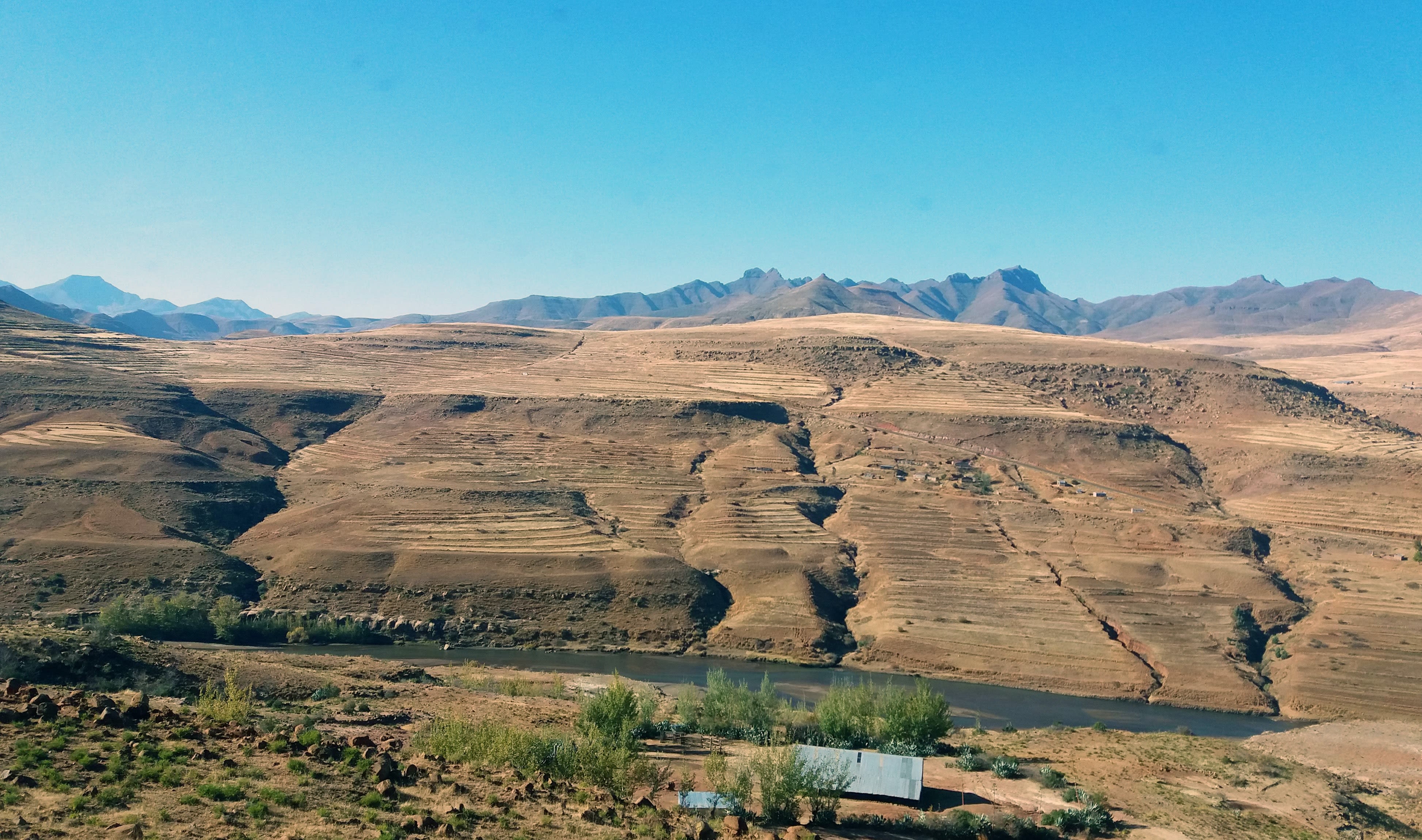
Lesotho, located in central South Africa, lies nestled in the exquisite Maluti Mountains, which form part of the southern Drakensberg mountain range.
It is the only independent state in the world that lies entirely above 1,000 metres; due to its high altitude, it is often referred to as ‘the kingdom in the sky’.

Drakensberg, Lesotho. Photo: Jandre Van Der Walt / Unsplash.com
Drakensberg, Lesotho. Photo: Jandre Van Der Walt / Unsplash.com
Leribe is a green but bustling district, with its administrative centre standing on the banks of the Hlotse River close to the South African border on the northeast.
The area is made up of many small villages, most of which are inaccessible by car and nestled high up in the mountains without electricity or municipal water.
For Mrs. ‘Mampho Thulo, these mountains are her home.
High altitude agents of change
Mrs. Thulo is the Director of the Rural Self-help Development Association (RSDA) in Lesotho.
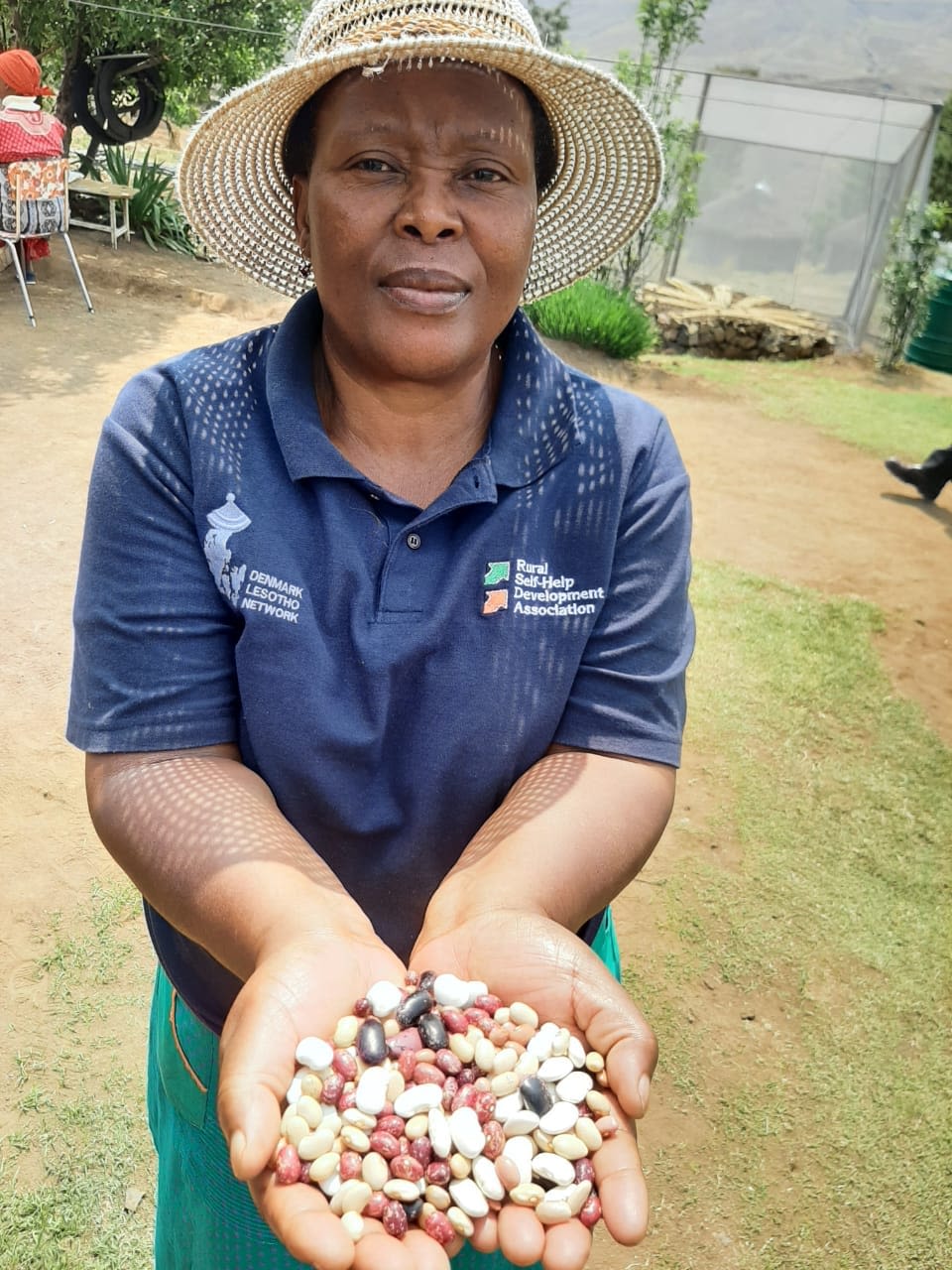
Mrs. 'Mampho Thulo, RSDA Director, Lesotho. Photo: SGP Lesotho
Mrs. 'Mampho Thulo, RSDA Director, Lesotho. Photo: SGP Lesotho
RSDA’s mission is to support smallholder farmers on sustainable farming and ecological agricultural practices with an emphasis on the economic, social and cultural dimensions of the community.
As farmers, market sellers, businesspeople, artisans, entrepreneurs and community leaders, mountain women and girls – particularly in rural areas - have the potential to be major agents of change.
When women like Mrs. Thulo have access to resources, services and opportunities, they become a driving force against hunger, malnutrition and rural poverty, and can be active in the development of mountain economies.
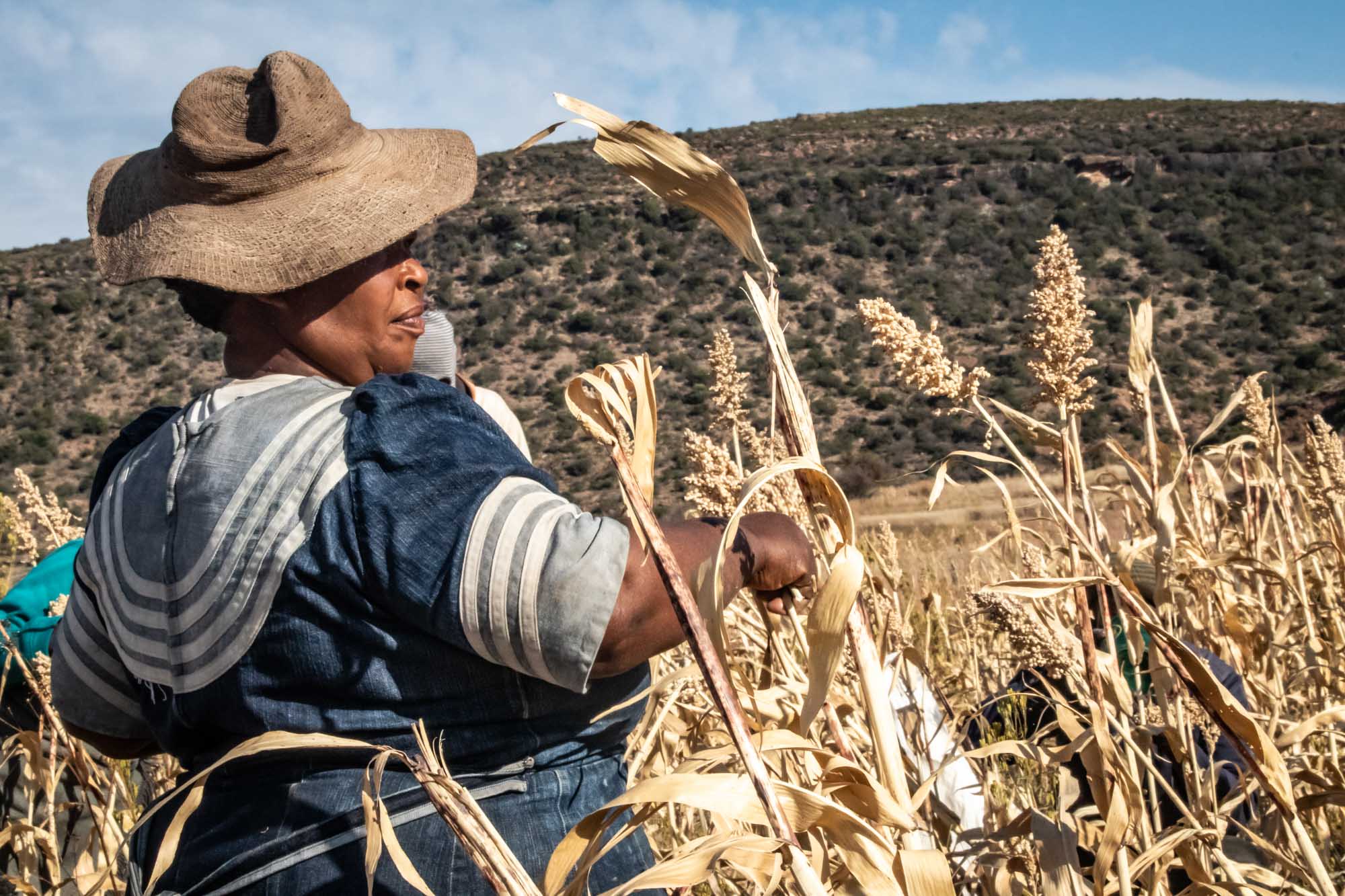
A member of the Majantja Temong Farmers growing sorghum. Photo: SGP Lesotho
A member of the Majantja Temong Farmers growing sorghum. Photo: SGP Lesotho
Over the last two years, Mrs. Thulo and RSDA have been working with the Leribe Farmers Forum and the Majantja Temong Farmers Association on projects as a partnership between the GEF Small Grants Programme implemented by UNDP and the Mountain Partnership.
Mountains matter
Mountains are among the most important ecosystems for the survival of our planet, providing essential goods and services. Not only are they home to 1.1 billion people, but they also provide 60-80 percent of global freshwater resources for domestic consumption, irrigation, industry, food, and energy production.
Mountains matter for all, and in mountainous regions globally, agriculture is often the backbone of the local economy.
However, farming in mountain regions is undergoing rapid transformation, and global environmental and economic changes have contributed to higher pressure on local resources, unsustainable practices in land use, and loss of local customs and ancient traditions.
The urgent challenge is to identify new and sustainable opportunities that can enhance the resilience of mountain peoples and their ecosystems.
Investments and technical support are needed to diversify and boost mountain farming systems and improve the competitiveness of mountain agricultural products and bolster their value chains.

Enhancing mountain resilience
Since 2020, the Small Grants Programme, the Mountain Partnership, and Slow Food International have been working together to address some of these challenges through an initiative titled ‘Enhancing agri-food value chains to increase resilience of mountain communities’.
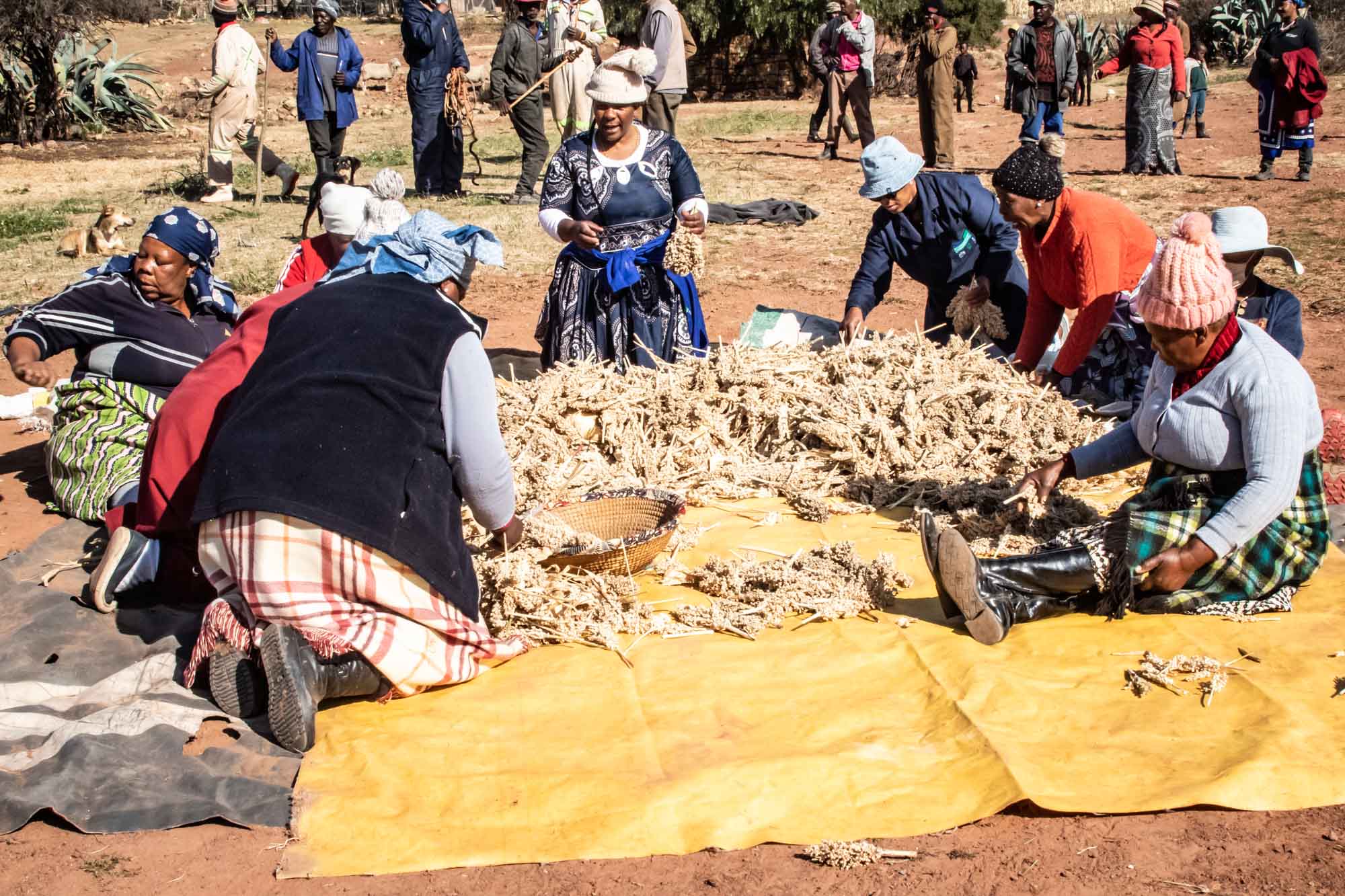
Harvesting the sorghum. Photo: SGP Lesotho
Harvesting the sorghum. Photo: SGP Lesotho
The initiative leverages the efforts of all partners with the common goal of increasing the resilience of mountain communities through the improvement of local mountain economies.
This initiative is being implemented in Guatemala, Lesotho, Nepal and Rwanda, and aims at strengthening the value chains of high-value mountain products, coupled with building capacity for farmers and producer organizations to promote sustainable mountain products.
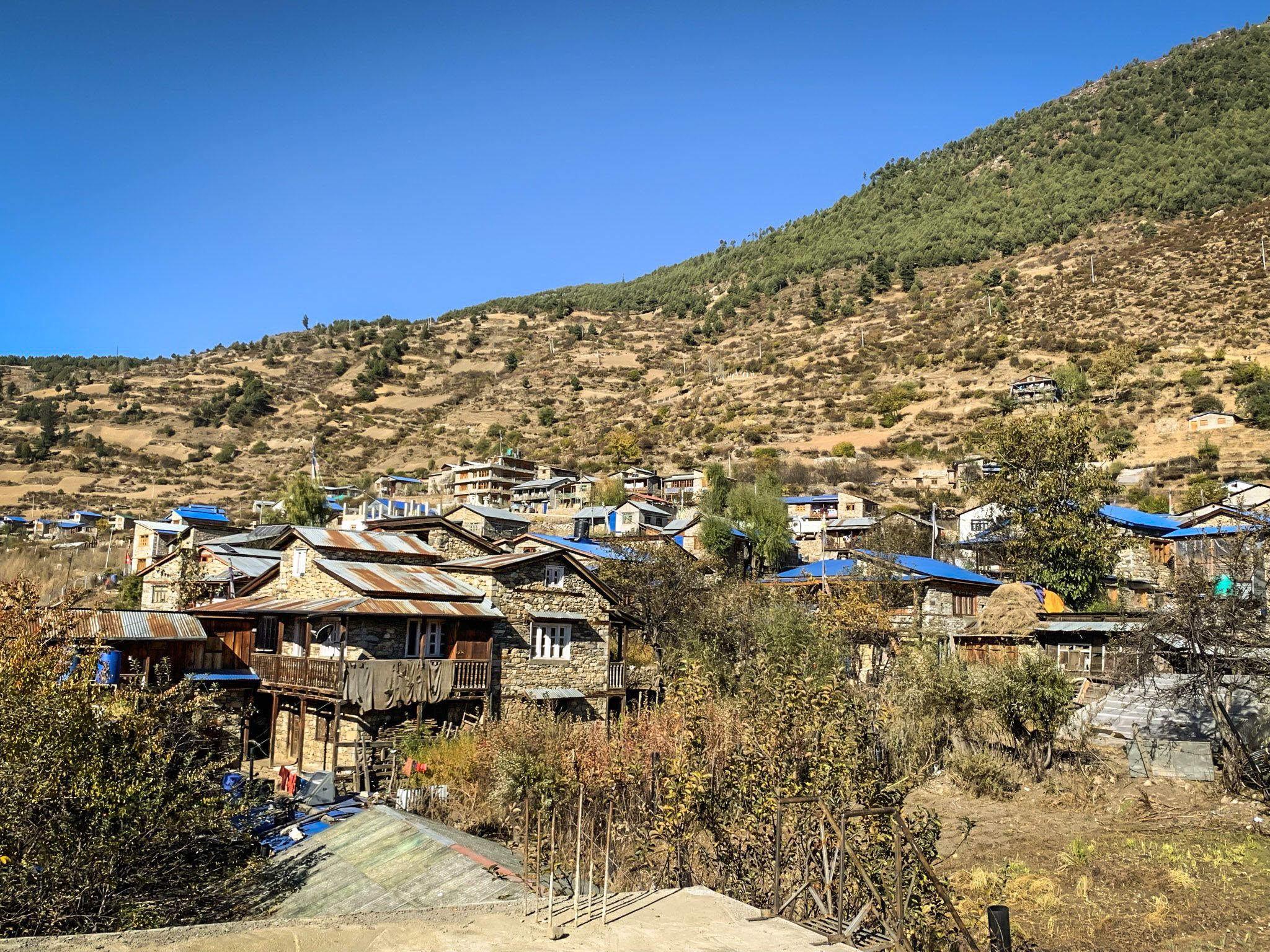
Mountain communities in Nepal. Photo: SGP Nepal
Mountain communities in Nepal. Photo: SGP Nepal
To date, capacity building activities such as agrobiodiversity mapping, value chain improvement, and Participatory Guarantee Systems (PGS) have been conducted with 12 producer communities, representing 1,041 farmers, of whom 657 are women.
Mountain agri-products promoted through this initiative include coffee, honey, tea, mushrooms, sorghum, barley and rosehip berries, among others.

Hot water pasteurization of substrate for sustainable oyster mushroom farming in Nepal. Photo: SGP Nepal
Hot water pasteurization of substrate for sustainable oyster mushroom farming in Nepal. Photo: SGP Nepal
Women move mountains
The International Year of Sustainable Mountain Development 2022 is a unique opportunity to raise awareness about the role of mountains and mountain people for our planet and sustainable development.
The theme of this year's International Mountain Day on 11 December is ‘Women move mountains’, recognizing the key role women play in mountains' environmental protection and social and economic development.
They are often the primary managers of mountain resources, guardians of biodiversity, keepers of traditional knowledge, custodians of local culture, and experts in traditional medicine.
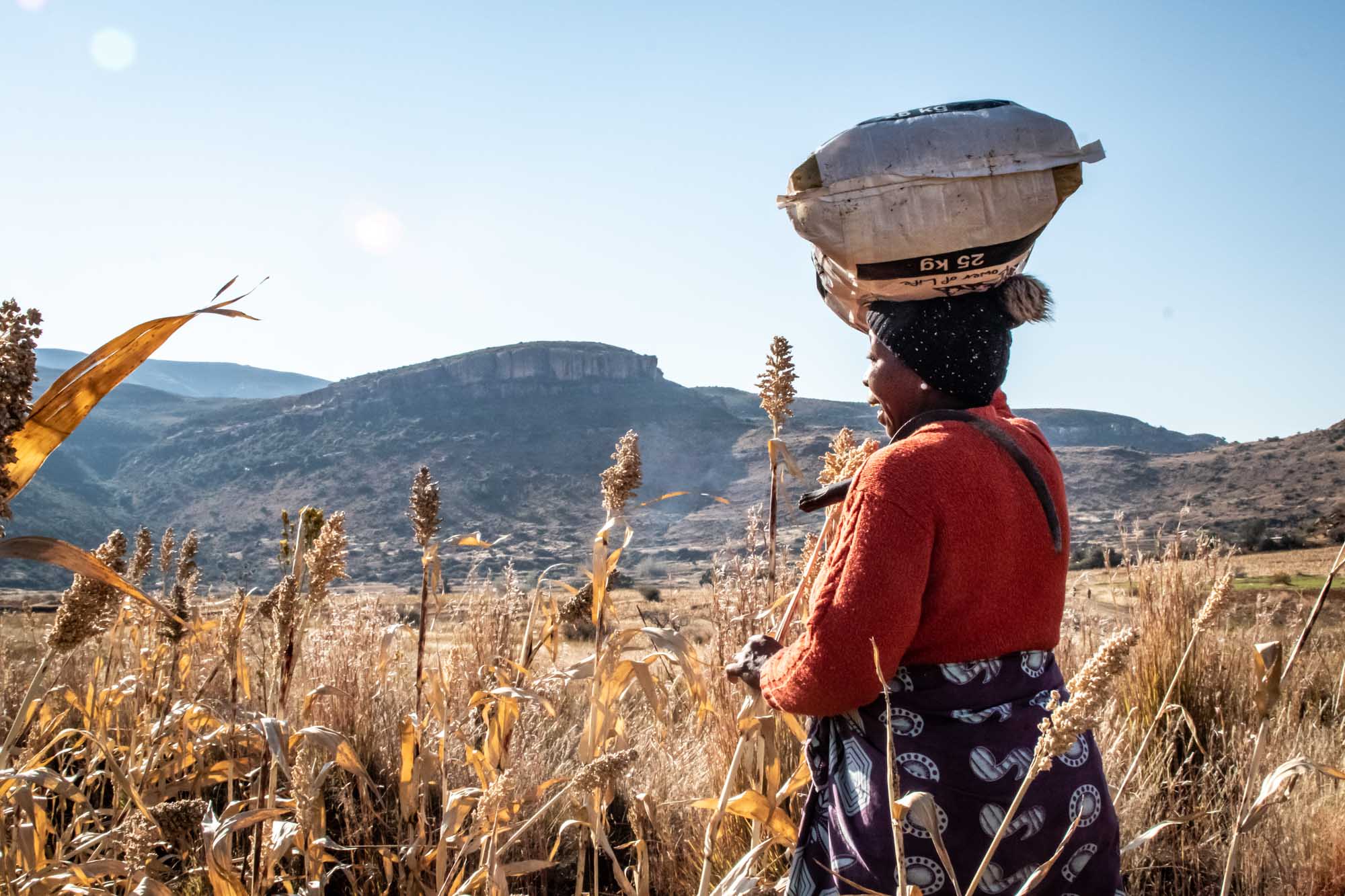
The story of food: a millennia-old relationship with the mountains
In 2016, the Mountain Partnership Secretariat (MPS), in collaboration with Slow Food International, launched the Mountain Partnership Products (MPP) initiative: a participatory certification and labelling scheme based on environmentally and ethically sound value chain approaches.
The initiative promotes short, domestic value chains while ensuring transparency and trust between producers and consumers, fair compensation for primary producers, and preservation of traditional techniques.
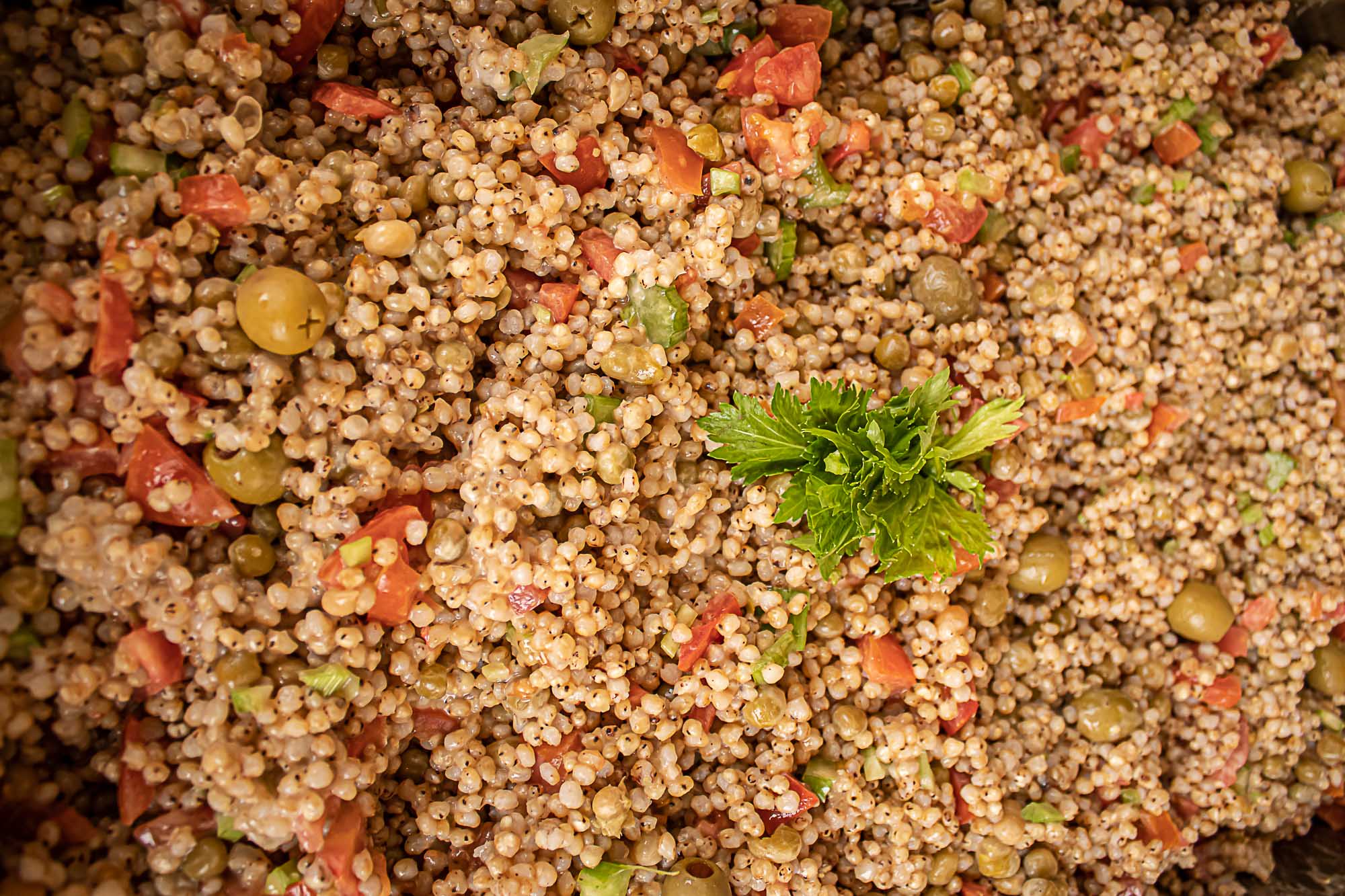
Of the 20 plant species that supply 80% of the world's food, six originated and have been diversified in mountains: maize, potatoes, barley, sorghum, tomatoes, and apples. Photo: Prepared sorghum ready to eat./SGP Lesotho
Of the 20 plant species that supply 80% of the world's food, six originated and have been diversified in mountains: maize, potatoes, barley, sorghum, tomatoes, and apples. Photo: Prepared sorghum ready to eat./SGP Lesotho
In Lesotho, all three selected producer groups received training aimed at providing knowledge and tools needed to boost the sustainability of their production practices, improving the marketability of their products, and on the importance of preserving and enhancing agricultural biodiversity in fragile mountain ecosystems.
Furthermore, communities received capacity building that was tailored to their specific value chain with a focus on quality products and retaining traditional cultural practices.
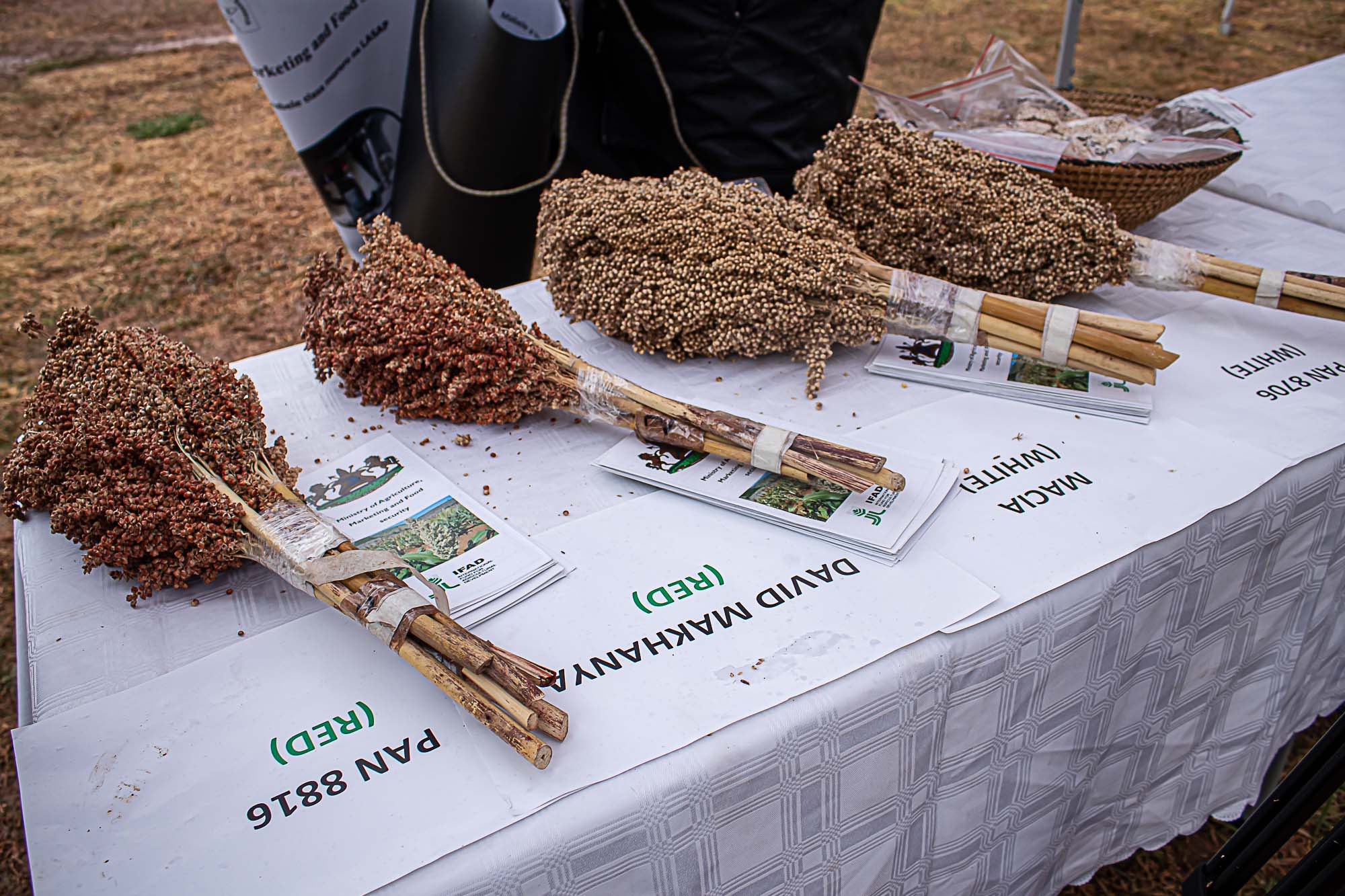
Sorghum varieties on display at the Sorghum Harvest Ceremony. Photo: SGP Lesotho
Sorghum varieties on display at the Sorghum Harvest Ceremony. Photo: SGP Lesotho
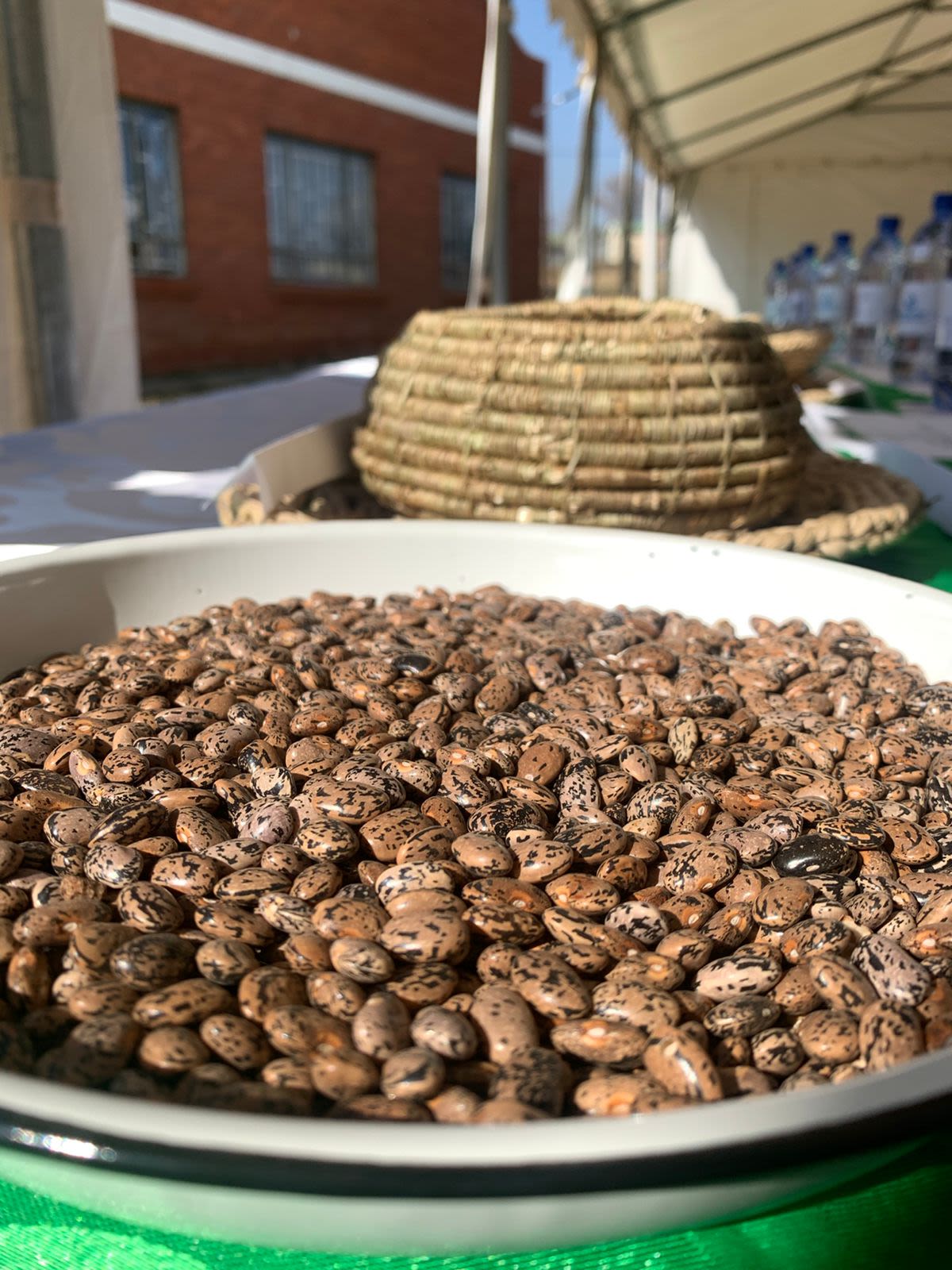
Beans prepared by the Leribe Farmers Forum. Photo: SGP Lesotho
Beans prepared by the Leribe Farmers Forum. Photo: SGP Lesotho

Fermented sorghum drink on display at the Sorghum Harvest Ceremony. Photo: SGP Lesotho
Fermented sorghum drink on display at the Sorghum Harvest Ceremony. Photo: SGP Lesotho
Three communities have submitted MPP Narrative Label applications for the following products: sorghum (Majantja Farmers Association), beans (Leribe Farmers Forum), and fermented milk products (Rural Self-Help Development Association).
The MPP Narrative Label tells the story of each product, enabling consumers to make informed purchases by learning about products' origins, processing, nutritional value, and role in local cultures.
Producers also joined Slow Food networks such as the Slow Food Chef Alliance and the Indigenous Terra Madre Network.
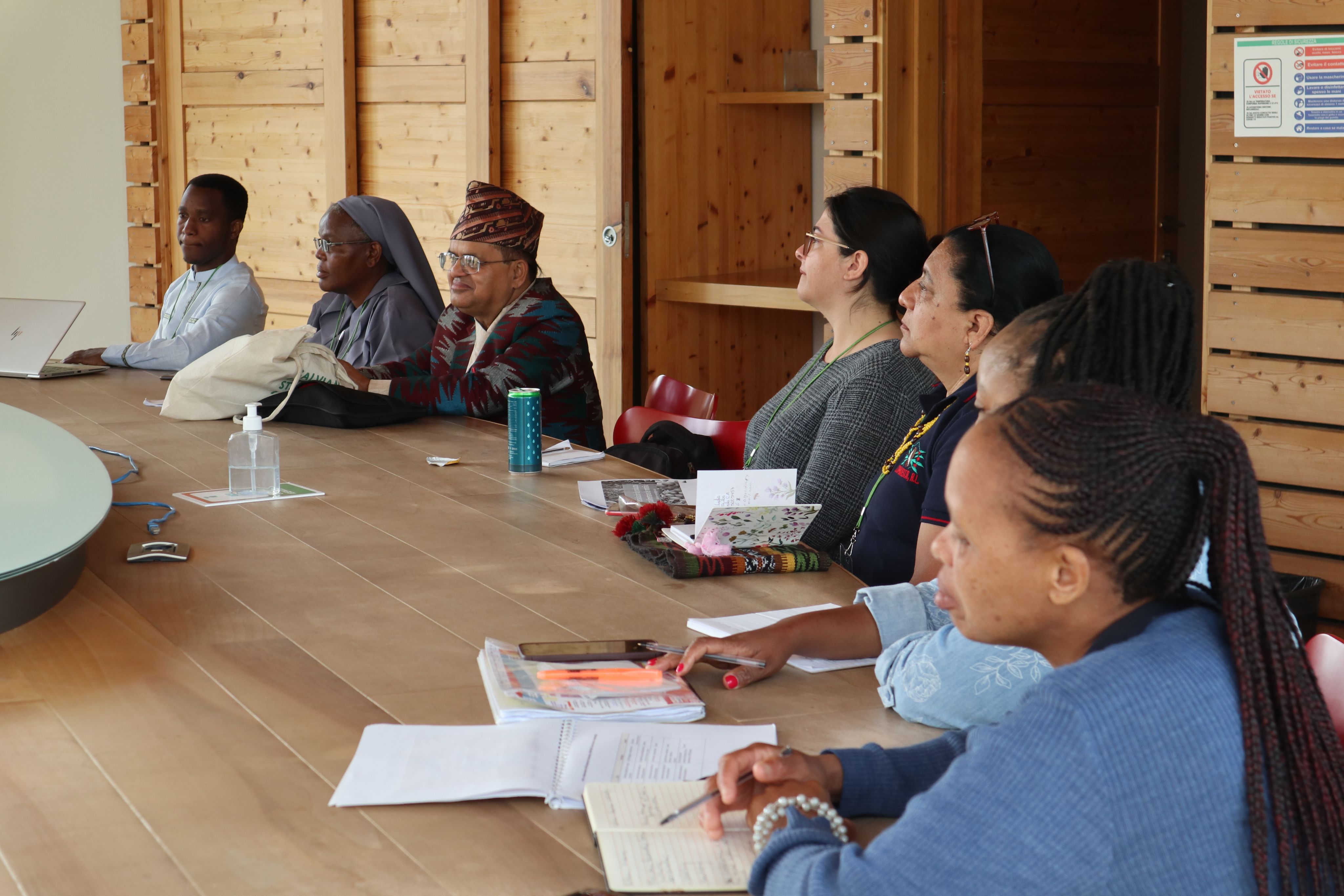
In September 2022, some of the producers also had the opportunity to participate in the Terra Madre Festival in Turin, where they shared knowledge on their products and participated in PGS and marketing training. Photo: Valeria Barchiesi, MPS
In September 2022, some of the producers also had the opportunity to participate in the Terra Madre Festival in Turin, where they shared knowledge on their products and participated in PGS and marketing training. Photo: Valeria Barchiesi, MPS
"Due to the partnership with GEF SGP and Mountain Partnership Initiative, my mindset and that of my fellow farmers have changed about the food we produce, eat and sell. We are now even more aware of the dangers of using agro-chemicals and we have decided to enhance our focus on producing good, clean and fair food for all."
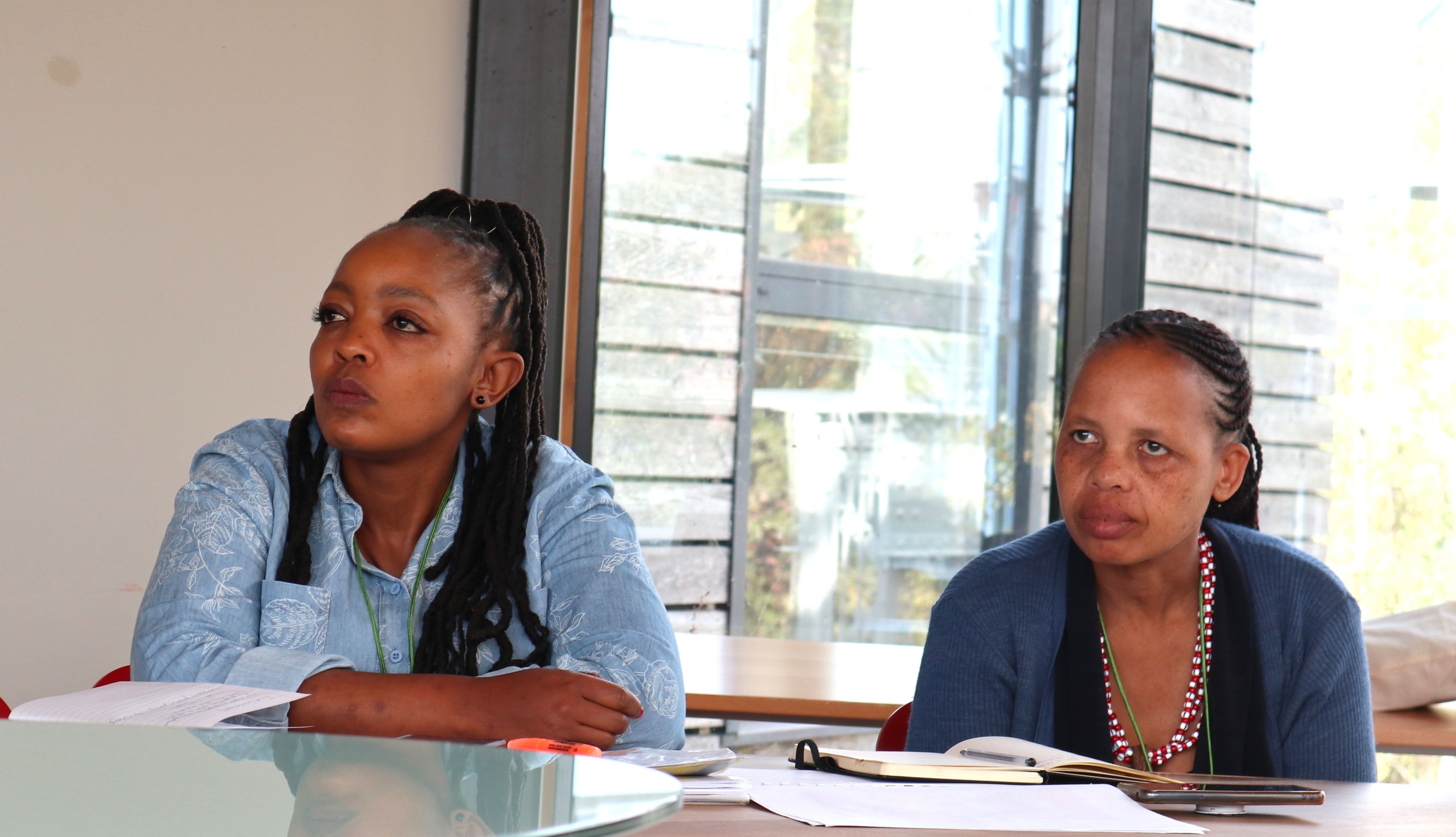
Ska Moteane (L) and Matebello Kheola (R) at Terra Madre. They're integral members of the Lesotho MPP work. Photo: Valeria Barchiesi, MPS
Ska Moteane (L) and Matebello Kheola (R) at Terra Madre. They're integral members of the Lesotho MPP work. Photo: Valeria Barchiesi, MPS
Celebrating Sorghum
In Lesotho, the planting, harvesting and processing of sorghum is rooted deep in cultural and traditional practices. For these mountain communities, sorghum is imperative for the celebration and preservation of local indigenous Basotho cuisine.
“It’s impossible to imagine Lesotho without thinking about sorghum.”
Sorghum is a nutrient-packed ancient grain that is naturally gluten free and drought resistant, and is a staple crop in Basotho culture.
It is used to make many traditional dishes including bread, porridge, stews and sorghum beer, all of which are consumed at events and ceremonies as a symbol of reverence and gratitude.
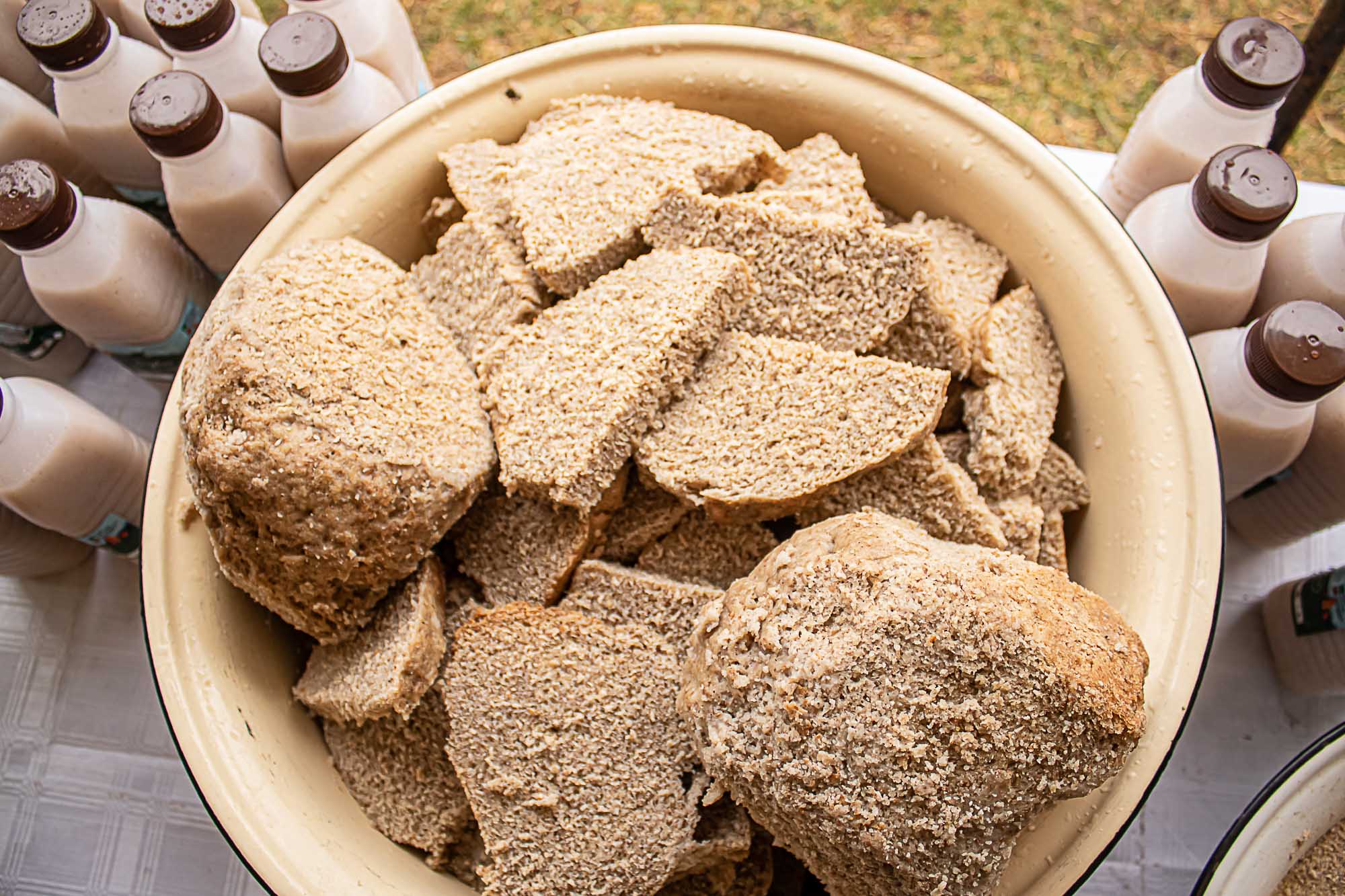
Sorghum bread and drinks shared at the Sorghum Harvest Ceremony. Photo: SGP Lesotho
Sorghum bread and drinks shared at the Sorghum Harvest Ceremony. Photo: SGP Lesotho
In Lesotho, the cultural practices of growing and harvesting sorghum contribute to the quality, taste and flavour of the products.
Traditional, chemical-free and manual methods for preparing the soil, sowing the seeds and harvesting have been passed down for many generations.
In celebration of this rich history, a traditional Sorghum Harvest Ceremony was organized by the Majantja Temong Farmers Association, Slow Food, supported by RSDA and SGP.
The ceremony was held at Ha Khoai village, Mohale’s Hoek. This event commemorated the beginning of the sorghum harvest season, and aimed to re-ignite people’s interest in practicing the culture of letsema - a traditional practice of the community voluntarily working together for one common purpose.
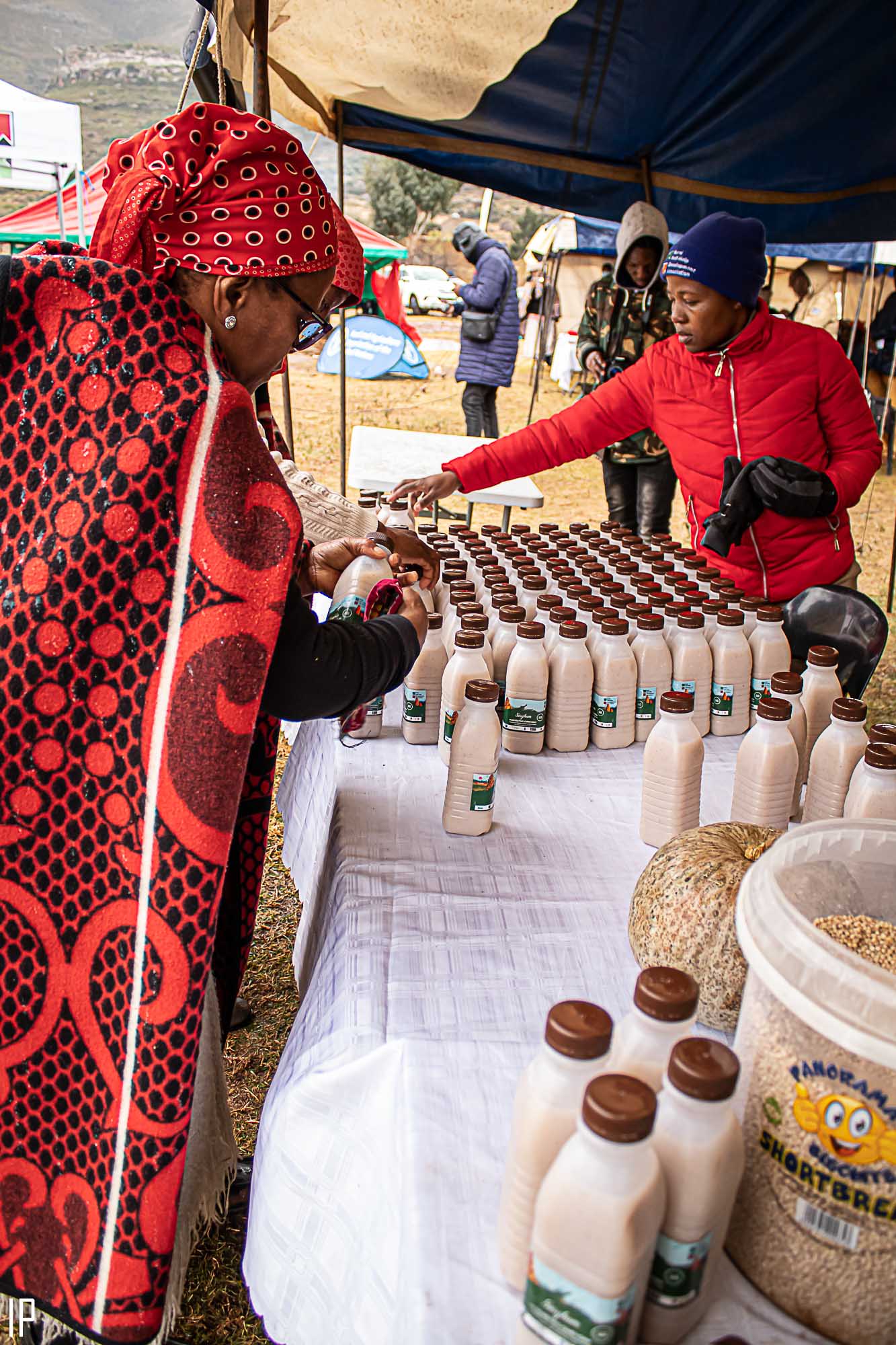
The Majantja Temong Farmers Association is an umbrella association of farmers’ groups in the Senqu River Valley in the Mohale’s Hoek district of Lesotho, and they are among the largest producers of sorghum in Lesotho.
Their primary focus includes providing capacity-building and support to farmers, preservation of indigenous seeds, and promoting art, culture, health and well-being.
"We are all united and working to showcase the importance of sorghum."
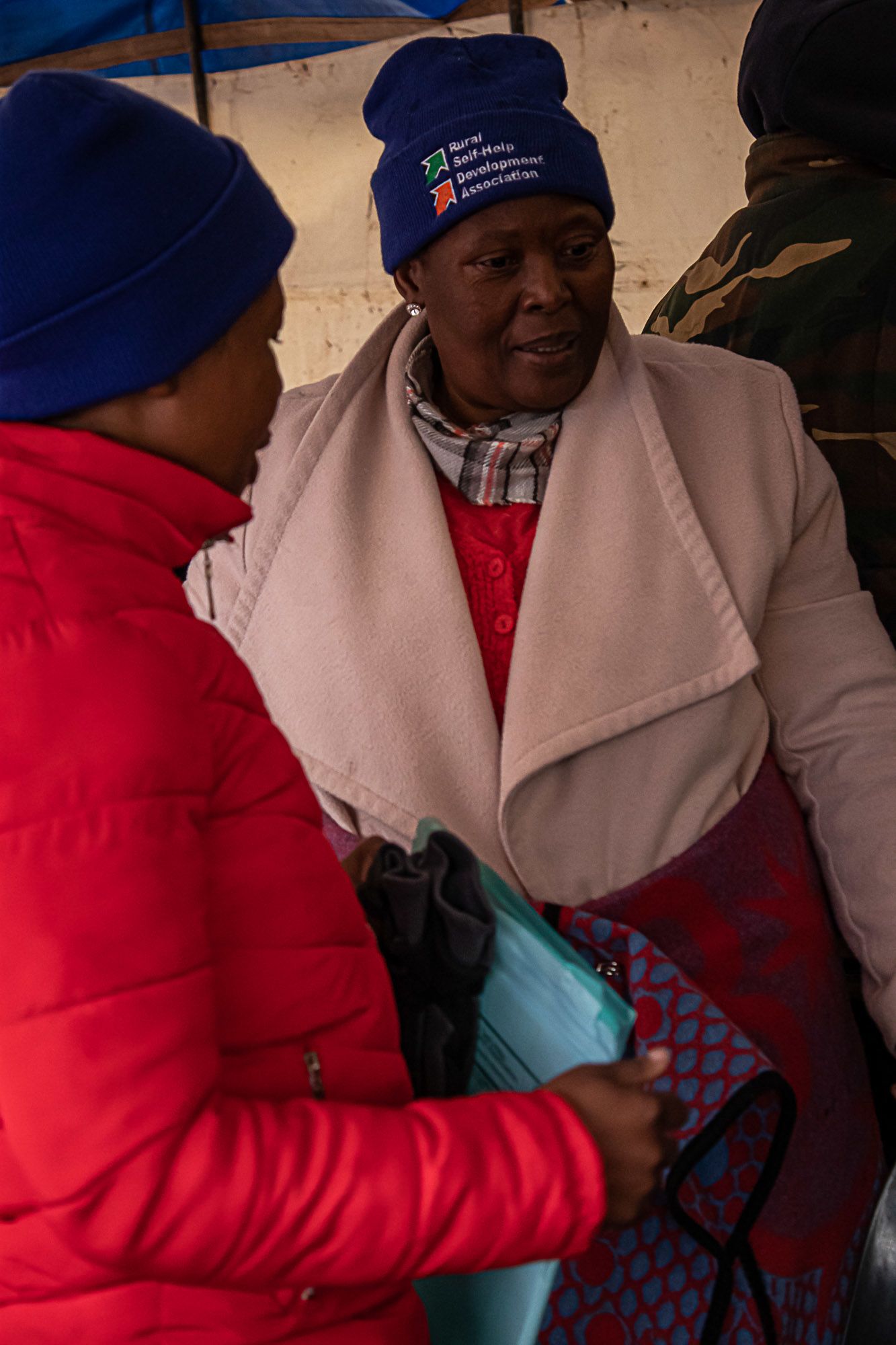
'Mampho Thulo (center). Photo: SGP Lesotho
'Mampho Thulo (center). Photo: SGP Lesotho
"SGP really uplifted and empowered us. We are steadfast in producing sorghum. Despite climate change, sorghum has proven to be a resilient crop."
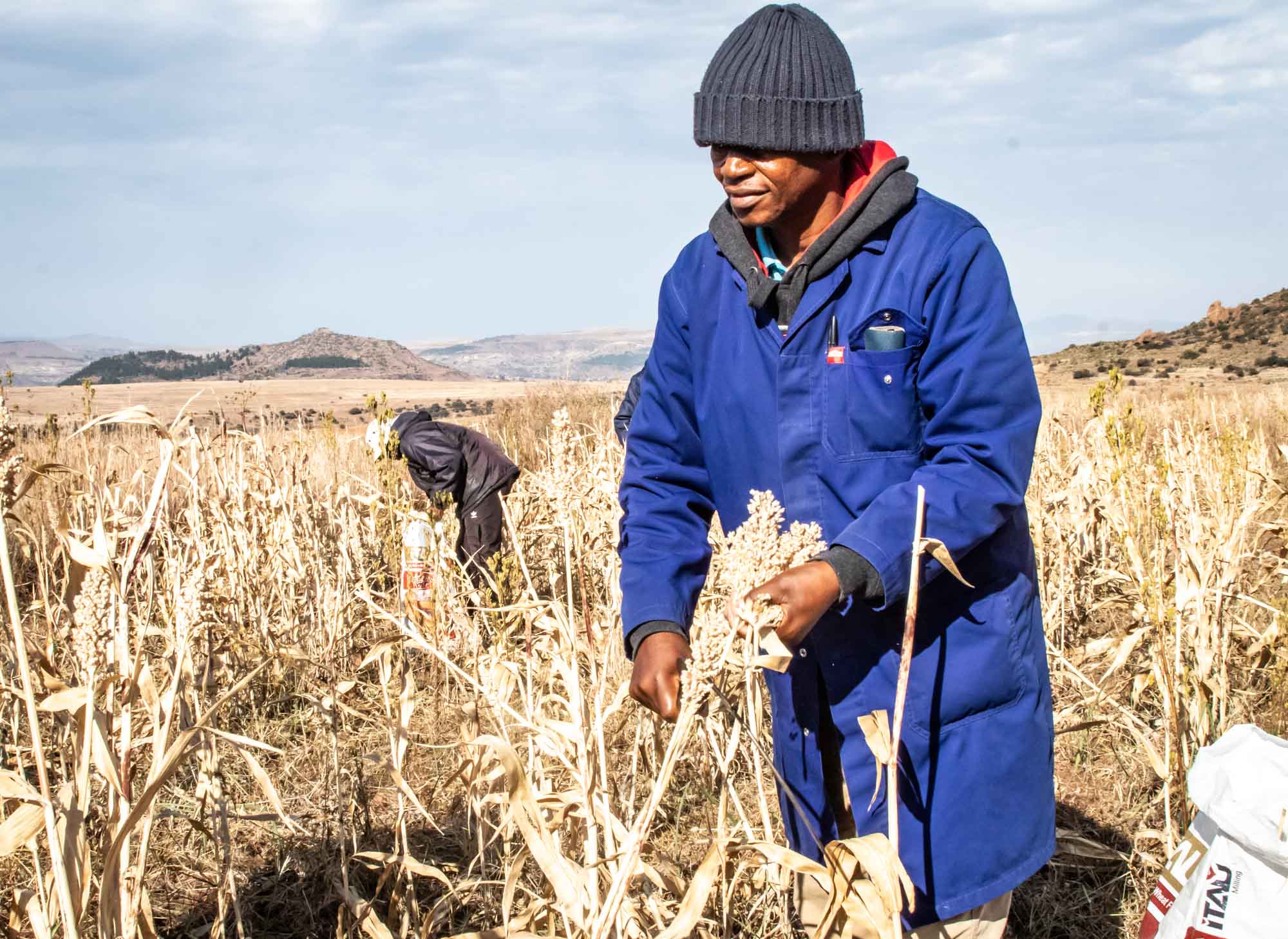
Letlamoreng Lehloenya, Majantja Temong Farmers Association. Photo: SGP Lesotho
Letlamoreng Lehloenya, Majantja Temong Farmers Association. Photo: SGP Lesotho
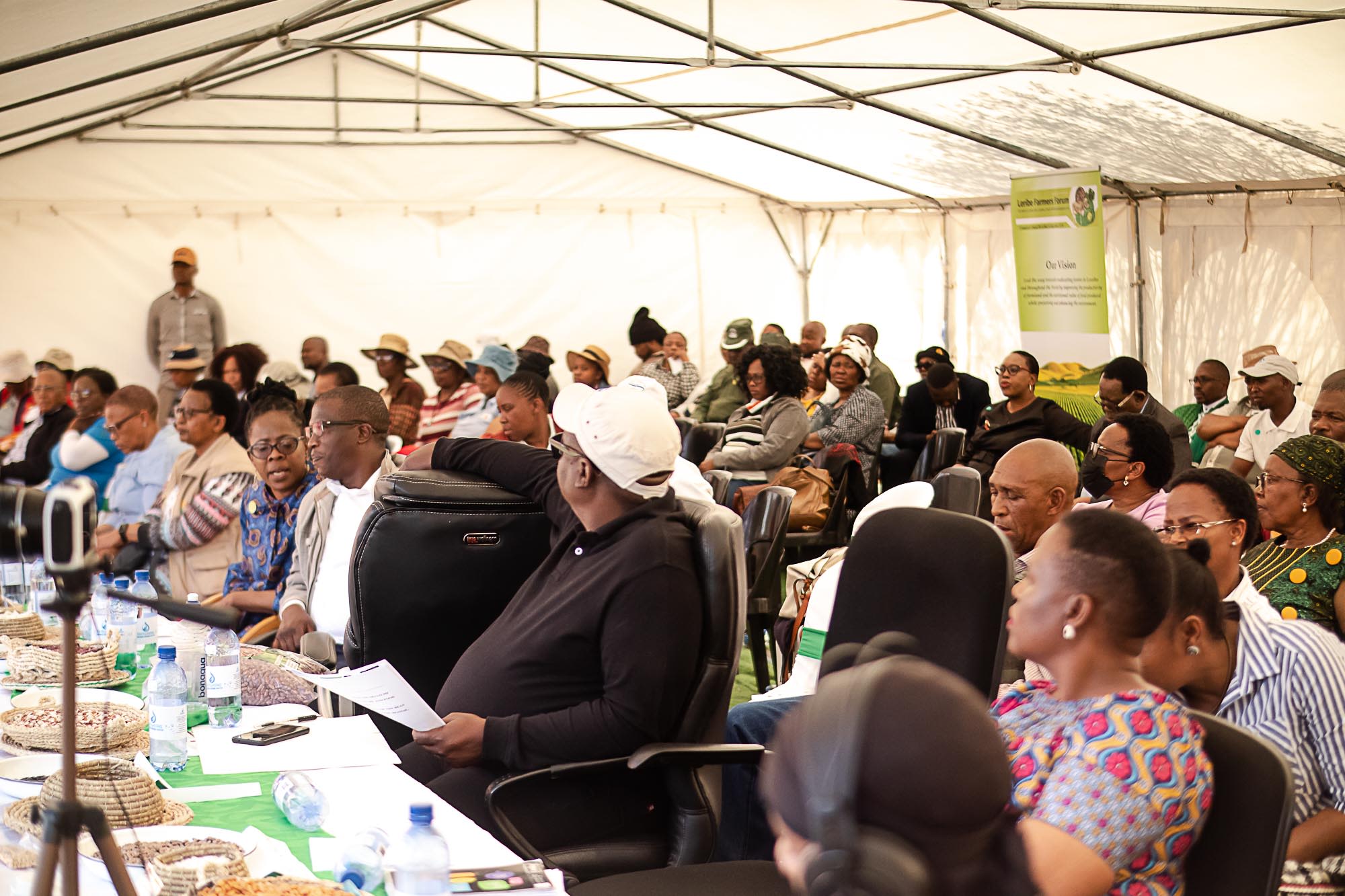
From seed to table
Based on successes to date, in 2022 SGP and the Mountain Partnership announced an expansion of the collaboration and partnership to cover another phase, which will include eight to ten countries.
The purpose of this expanded phase is to promote innovative entrepreneurship, improve the resilience of local economies and the livelihoods of mountain and island communities.
It will be structured as a Business Incubation and Acceleration programme targeting value chains that represents bio-cultural heritage of the communities and generates positive benefits for mountain and island ecosystems.
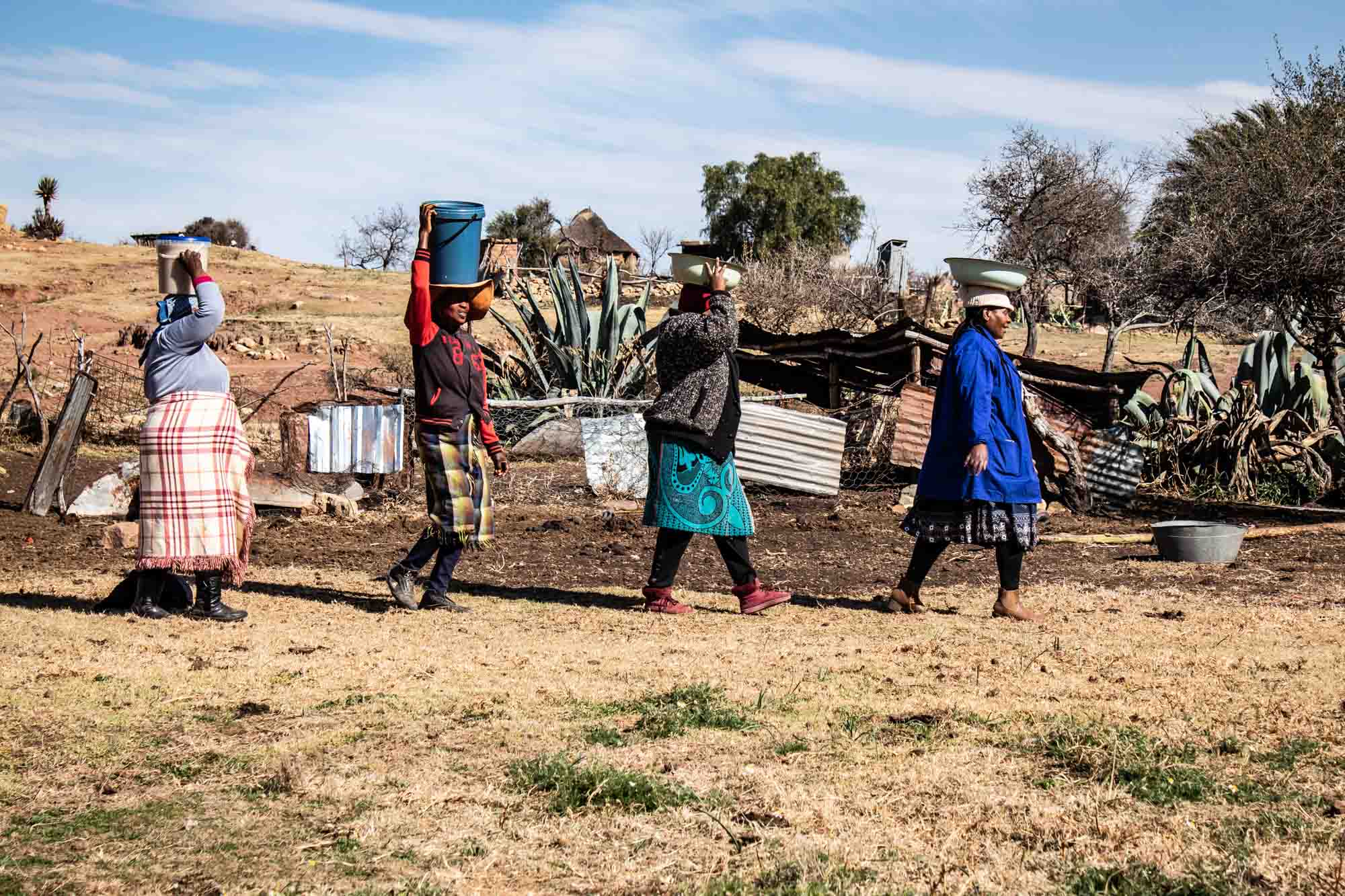
Regeneration
The world faces a multidimensional planetary emergency of nature loss, climate change, poverty, and inequality.
We need to rethink and radically transform our relationship with nature- for people and for planet.
The post 2020 Global Biodiversity Framework will work to put nature at the heart of sustainable development, and COP15 will provide the impetus and ambition needed for this transformation.
We can look to the mountains for inspiration.
COP15 is our moment to turn rhetoric into action.
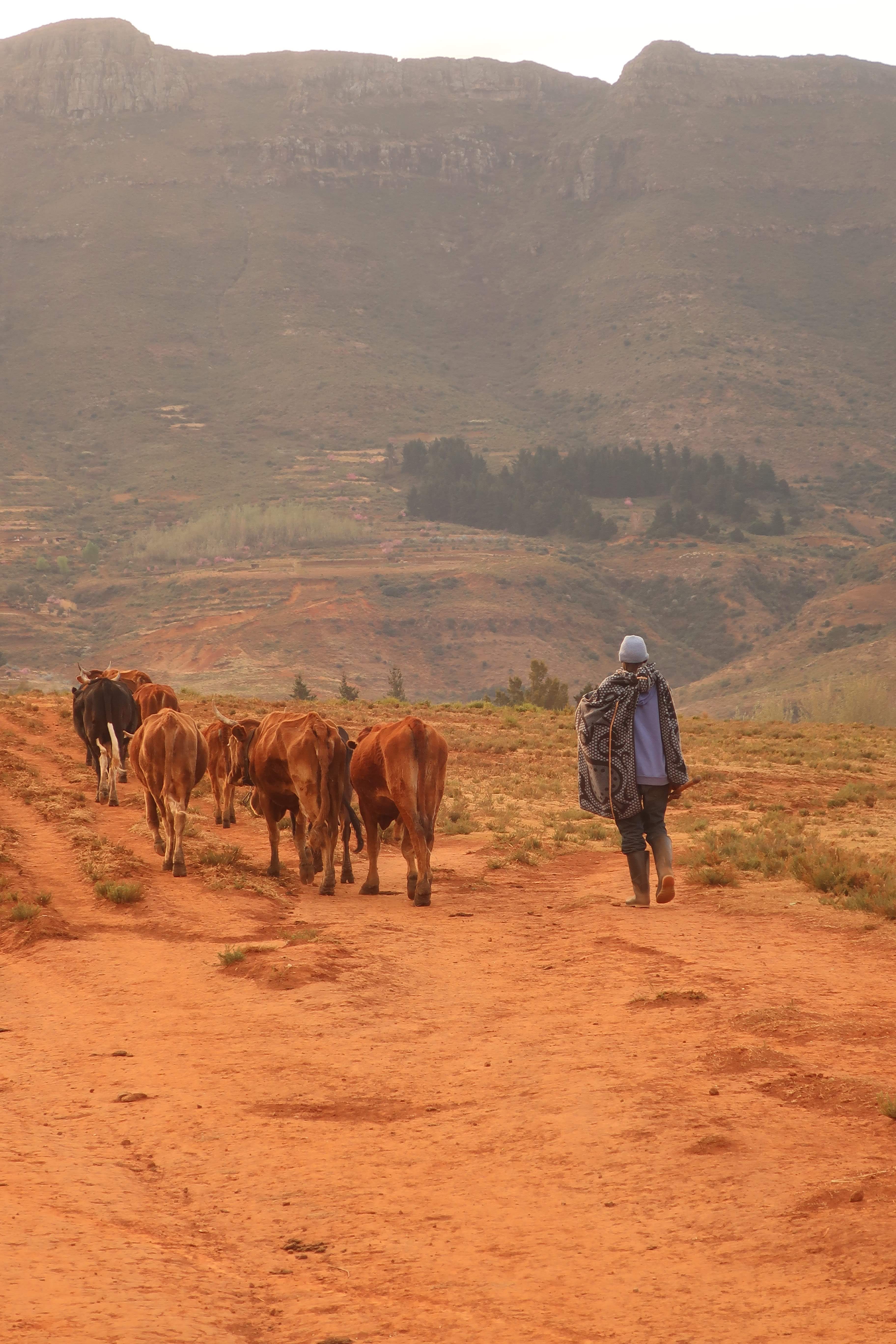
Local herder, Malealea, Lesotho. Photo: Mark Potterton/Unsplash.com
Local herder, Malealea, Lesotho. Photo: Mark Potterton/Unsplash.com
30 years of action
For the past thirty years, SGP has been providing financial and technical support to civil society and community-based organizations on innovative community-driven initiatives that address global environmental issues while improving local livelihoods.
This year marks the programme’s 30th anniversary: since its inception in 1992, SGP has delivered over US$720 million to >27,000 community-based projects, changing countless lives in 136 countries.
Since 2008, the Small Grants Program has supported more than 107 projects in Lesotho
For more information on SGP-supported projects in Lesotho, visit the SGP Lesotho Country Page.
Visit the SGP website for details on the Small Grants Programme.

Lesotho. Photo: Tatenda Mapigoti/Unsplash.com
Lesotho. Photo: Tatenda Mapigoti/Unsplash.com

Footnotes: Text by Andrea Egan, Rissa Edoo and Nthabiseng Majara.
Photos: © Courtesy of SGP Lesotho and others as noted.
Location: Lesotho
